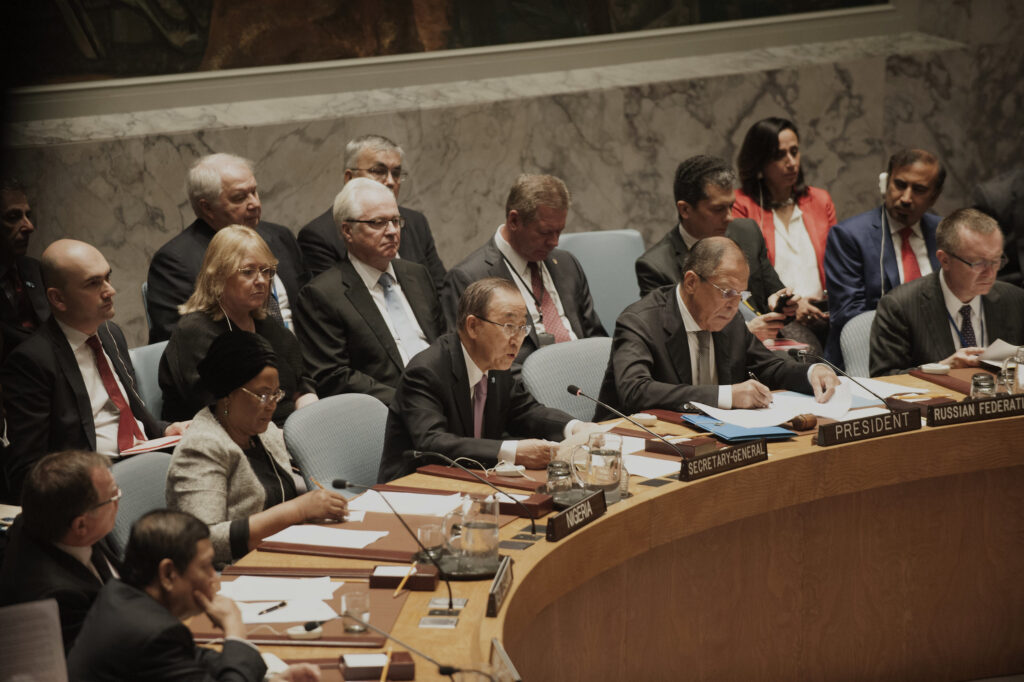Terrorism may be a subset of criminal activity but there are times when the smaller group works with the larger.
When we talk of crime we probably should distinguish between acts that are committed at the individual level and those at the group level. Any one person can decide to do something we see as illegal and for which there is a specific punishment: murder, assault, theft, etc. The reasons for this tend to be personal in nature.
Group-level crimes are of a different nature. Not only do they involve more than one individual but they are often perpetrated for larger order reasons. A gang may want to control territory. A drug cartel wants to make money. A mafia wants to do both. Yes, some individuals resort to illegal acts to get rich – think blackmail or extortion – but I would bet these are the exception and not the rule.
Another important aspect of this type of activity is that it is NOT carried out for ideological reasons. This is not the case for still an additional kind of criminal action which we call terrorism. That type is most definitely tied to ideas, be they political, religious or of some other kind. Terrorists are trying to right wrongs or address grievances and do so because of what they believe in.
As a result, it is not that usual for the two to mix as their agendas are so different. This should not be construed as saying that it NEVER happens. Terrorist groups like Hizballah in Lebanon, which has a presence in many countries thanks to the very large Lebanese diaspora, often straddle the crime/terrorism nexus.
And the same thing seems to be taking place in Nigeria.
Boko Haram, a violent Islamist terrorist group that has been ravaging Nigeria (mostly in the northeast) for over a decade, is now ‘teaming up’ with what are widely referred to as ‘bandits’ but which are nothing but common criminals.
According to a recent report by the Institute for Security Studies:
Boko Haram, particularly under (leader Abubakr) Shekau, has long been interested in expanding its base beyond Nigeria’s north-east. And its north-west and north-central regions are increasingly becoming its areas of choice due to deteriorating security conditions.
The report goes on to say that Boko Haram is doing this to further its desire to create an Islamic state that goes beyond the north-east, to enhance recruitment and financial gains from ransom payments and other activities such as illegal gold mining, and to create a ‘diversion’ in light of military pressures on this terrorist group.
But what do the criminals get out of this?
Easy: opportunities. If they team up with violent extremists they can use the resources that group affords and gain more people to exploit. The crooks do not need to adopt the ideological goals terrorists use.
This development will put additional pressure on Nigerian security and military forces, neither of which is having a great deal of success against either Boko Haram and other terrorist groups or bandits and other criminals.
It will be interesting, and important, to follow this going forward to see how long it lasts, how deep the ties go, and whether or not this is a ‘game-changer’. On occasion, the ties between terrorists and ‘garden variety’ criminals is not much more than a one-off. For instance, those behind the March 2004 bombings on the Madrid rail/metro system in Spain were said to have obtained their explosives from the criminal underworld. The head of the Islamic cell charged with conducting the train bombings, Jamal Ahmidan, operated for years as a drug dealer and gunman in the Basque region of Spain. I am not aware of any further links between Spanish jihadis and Spanish malefactors.
This ‘relationship’ between ideological actors and pure crooks led to the deaths of almost 200 people and the injuries of another 1,600. This may have been the single greatest example of how cooperation among these agents was the direct precursor to mass casualties.
Let’s hope it is the last one.
On the other hand
When terrorists turn to crime it may be to the benefit of law enforcement and security intelligence agencies. Put simply, a crime is much easier to prove than is an act of terrorism. Either person A killed (or planned to kill) person B or did not. Those are readily determinable facts. WHY that person did what they did is a matter of a very different order since ascertaining and establishing rationales is far from simple. Hence, terrorists who engage in purely criminal acts can be arrested, charged and tried on that basis.
Maybe, then, we should encourage more violent extremists to keep it simple.
Read More about Boko Haram

Global Terrorism This Week (GTTW) – September 5 – 11, 2022
Global Terrorism This Week for September 5 to 11 shows, once again, a heavily dominant jihadi threat.

Does ‘terrorism’ mean too much to too many?
We must get better at when to use the word terrorism to describe acts of violence: in a world rife with too much terrorism, why would we want to make more?

April 8, 2011: Terrorists bomb Nigerian elections office
On April 8, 2011 a possible Boko Haram bomb blast killed at least six people at the office of Nigeria’s election commission in the central town of Suleja.

7 replies on “When terrorists and criminals collaborate”
In 2003, Opium poppy cultivation was around 80,000 hectares.
In 2004, it was 131,000 hectares.
Do you believe in coincidences?
In Afghanistan, I mean.
In 2014, it was 224,000 hectares.
Coincidence?
As national coordinating advocate general ct and other international crimes in the Netherlands you are touching a very interesting topic. It is absolutely necessary to investigate the nexus between international crimes and ordinary crimes and the complementarity between law enforcement and intelligence. Not only in terrorism cases ( in all her forms so included right wing terrorism) but also in other international crimes. We owe the victims that!
Thank you very much for your comment Simon! I am very grateful for all the insights gained from the AIVD and Dutch police over my years at CSIS.
The synergy between terrorists and criminal gangs become more evident when you see them navigate through the correctional realm. Together they find ways to benefit from each other to achieve their distinct goals. Drug distribution routes become gun distribution routes, external contacts become part of an integral part of a neo network that increase in size and numbers. The reality is this new (not so new) reality is a borderless alliance which requires law enforcement to forge international partnerships just to keep up with them.
Great comment Luc! Thx for your insight!
The symbiotic relationship that these two entities can form is extremely dangerous – terrorists provide protection to guard fields, and remove any potential problems, and the narcotics traders bring in money for more weapons to bolster the terrorists. A flourishing business arrangement, wouldn’t you say? Of course, with more funds, terrorists can undertake bolder operations, and drug lords can secure more territory. And with massive demand for drugs in the “Decadent West” coupled with a “War on Drugs” to create artificial demand for these “party favors” – Business is booming!